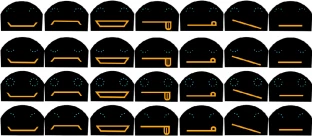5 million to develop innovative technological solutions to support ageing populations
The multidisciplinary project has developed a series of innovative technological solutions that contribute to a more active, safe and healthy ageing population.
English version: Diana Taborda
The University of Coimbra (UC) has developed, as part of a multidisciplinary project, a series of innovative technological solutions that contribute to a more active, safe and healthy ageing population.
Paulo Menezes, professor at the Department of Electrical Engineering (DEEC) of the Faculty of Sciences and Technology of the UC (FCTUC) and senior researcher at the Institute of Systems and Robotics (ISR), is responsible for the project "ACTIVAS - Built Environments for an Active, Safe and Healthy Life" at the UC, with a global funding of €5 million.
In this project, led by the company KENTRA technologies, Lda, the DEEC/ISR team developed a set of intelligent interaction capabilities for social (mobile) robots and a set of serious games (also called applied games) guided by artificial agents (avatars), essentially aimed at promoting the practice of physical exercise, not only for the elderly but also for children, especially those with autism spectrum disorders.
"One of the works we developed was aimed at understanding the extent to which we can increase attention and focus through movement. We therefore created a sensory experience, with sounds and images, in which we tried to draw the person's attention to certain things that were displayed on the screen and spontaneously associate sounds with them", reveals Paulo Menezes, explaining that this interactive setup consists of a camera with a built-in sensor that allows you to explore the capture of movement, analyse the individual and their posture, and reproduce different sounds that the person chooses through their movements. In addition to supporting creative exploration, this system also allows for subsequent analysis of the associations made, if wanted.
Another of the tools developed, also for the elderly, consisted of integrating, in an ecological way, two types of tests (Rickly & Jones and SARC-F) in an interactive system, in order to assess the presence of sarcopenia, that is, the loss of muscle mass, a very common problem in ageing, which can be prevented by practising physical exercise. "This test shows the level of functionality of the person and, depending on this level, they should perform the exercises of one of the sets we have developed", explains the professor, adding that it is possible to see whether the exercises are being properly performed by means of an evaluation mechanism, or to correct them if they are not, using the hints provided during the game.
Finally, and also as part of this project, the team developed new functionalities for a mobile robot developed in previous projects. This tool "is very interesting in the context of ageing. We currently face the problem of not having enough nursing homes for everyone and also the fact that many people prefer to stay in their own houses. However, safety can be an issue, because one of the main fears of most elderly people is that something will happen while they are alone and no one will notice. This is where the robot comes in," says the researcher, explaining that the aim is for this tool to send out alerts when there are signs of danger in the home, such as a fall or a gas leak.
However, despite the positive aspects of having a robot, the professor did not fail to mention the difficulty of getting people to accept the presence of this tool in their homes and the role it should play at a social level. "We have adapted the robot's behaviour to the person's emotions in real time, within the limits of what can be inferred from their facial expressions or tone of voice, using deep neural networks. For example, if the person is in a sad mood, the robot will move more slowly, but if they are happier, the robot can be more enthusiastic. This is very important because it contributes to acceptance. In the tests we conducted, we found that by adapting the robots' behaviour, people tend to feel more empathy," says Menezes, adding that “In view of the results obtained, DEEC researchers believe that this project "will allow the development of a range of services and even the creation of business opportunities for various entities to provide assistance services”.




